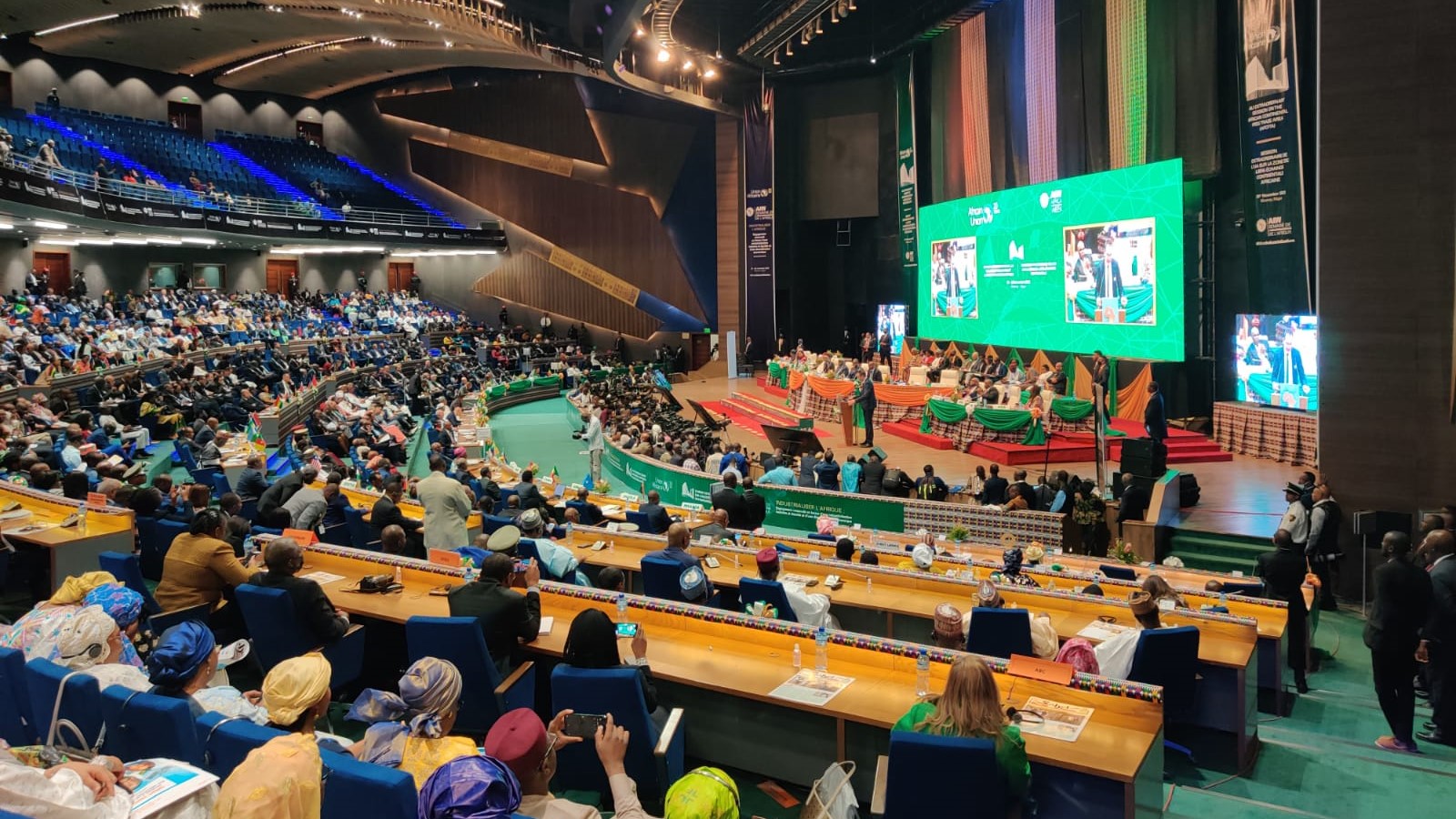

UNIDO Director General renews call for a ‘Marshall Plan’ with Africa at the African Union Summit on Industrialization and Economic Diversification
26 November 2022

NIAMEY, 26 November - Debt relief for Least Developed Countries (LDCs), local manufacturing capacities, fair access to global financial markets and compensation for damages caused by climate change are the necessary actions for Africa’s accelerated growth, said United Nations Industrial Development Organization (UNIDO) Director General, Gerd Müller.
Speaking at the opening ceremony of the 17th African Union Extraordinary Session on Industrialization, Economic Diversification and the African Continental Free Trade Area (AfCFTA) in Niamey, Niger, Müller said that Africa is the growth continent of the 21st century, offering numerous opportunities. With the Agenda 2063, the AU has defined its own path and with the AfCFTA agreement, African leaders have undertaken a huge and promising initiative, he remarked.

He reminded that Africa needs investments in sustainable industrialization which translates to investments in energy, infrastructure, digitalization, and skills development for youth and women. “I once again call for a Marshall Plan with Africa,” he said. An economic recovery programme, the Marshall Plan was offered by the United States of America to Western Europe after the end of the Second World War.
“UNIDO is your partner for sustainable industrialization. More than 50 percent of our work is in Africa, with initiatives like the Programme for Country Partnership. I will make sure that this cooperation grows stronger,” Müller explained. He expressed a vision of Africa having a well-developed vaccine production capacity and a growing automobile industry and of the continent achieving agricultural self-sufficiency. He called for the inclusion of African Union in the G20 to play a greater role in global decision-making since it represents 55 states with a population of 1.4 billion. The AfCFTA also creates a single economic block with a combined GDP of USD 2.6 trillion.
Speaking earlier, Republic of Niger’s President Mohammed Bazoum, host of the Summit, emphasized the need for digitalization and said, “We are living in a historic moment. The digital transition train is at the platform in front of us, let's not miss it, let's take it with determination. It is the condition of our industrialization that will give meaning to the AfCFTA.”


The Summit attracted Heads of States from numerous countries, bringing together over 95 strategic partners and 7,000 participants to deliberate on Africa’s industrialization. UNIDO delivered 11 side events on various themes. It launched the first versions of the Africa Industry Observatory and the African Industrialization Index, a joint collaboration with the African Development Bank and the African Union. A publication, based on the best practices compiled from UNIDO’s experience, Guidelines for Planning, Development and Management of Integrated Agro-Food Parks (IAFPs), was also released.
For more information, please contact:
Victor Djemba, Chief, Regional Bureau, Africa